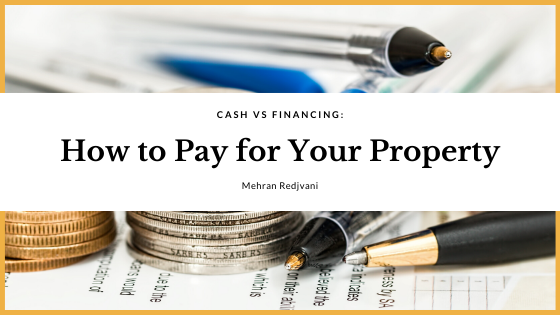Purchasing a home is one of the most significant decisions individuals make in their lifetime. Once you decide to buy a home, you have to determine if you are paying cash or finding additional financing. Putting as much cash as possible into your home can ultimately help you avoid more substantial mortgage debts. Both options have their pros and cons, and the following are just some of the significant differences when it comes to using cash or a mortgage to purchase a home.
Cash
Paying cash for a home eliminates the need to pay interest on a loan and any closing costs associated with the purchase of the house. Paying cash upfront is more attractive to sellers, and a seller in a competitive market is more likely to take a cash offer. Using a cash option also means that as a buyer, you are more motivated and are willing to be more flexible when it comes to closing the sale faster.
While paying cash might look like it’s only a benefit for the seller, there are also benefits for the buyer. A cash buyer can often obtain a property for a lower price and acquire a ‘cash discount’ for the transaction.
The property is also not leveraged and allows a homeowner to sell the property more efficiently regardless of the market conditions. A leveraged property uses borrowed capital as the funding to expand an asset base and generate returns on risk capital. If a cash buyer decides to sell the home, they need to make sure they will have sufficient reserves to use as a deposit for a new home.
Purchasing a home with an all-cash offer is an option for anyone who will be able to leave themselves plenty of liquidity. But there are other options.
Financing
If paying upfront in cash isn’t an option for purchasing a home, obtaining financing is another option potential homeowners can leverage. Purchasing a house with a mortgage is the more traditional way of buying a home. A mortgage is more the default option when it comes to buying a home, and most individuals need a sizable mortgage for their property.
In Canada, securing mortgage financing can be more complicated because it involves many parts. The first step is to prove that you have a steady and predictable income that will sufficiently cover all of your payments, including loan payments, credit cards, credit lines, and the new loan payments. In Canada, a property that can be afforded is usually 4 to 5 times the value of the gross annual household income.
Next, your credit history pulled from your credit report will need to show that over the past two years, all of the bills were generally paid on time, and there are not any outstanding debts to be paid off. More organizations that lend money or extend credit track this information through Equifax and TransUnion. Lenders look at past repayment records as a reliable predictor of future payment habits.
Finally, a mortgage lender wants to see that there is money to be put down on the property. Your minimum equity and down payment need to be 5% of the purchase price. Buyers also need to prove that there is an additional 1% set aside to cover the costs of a lawyer, appraiser, property inspector, and any other closing costs that are associated with the property.
The Canadian Government’s Home Buyers Incentive Program has put tax credits and other programs in place to help residents purchase homes. Whether you choose to finance your home with an all-cash offer or take out a mortgage, partnering with a trusted real estate agent can help you figure out the best option.
For more information, please contact Mehran Redjvani.

